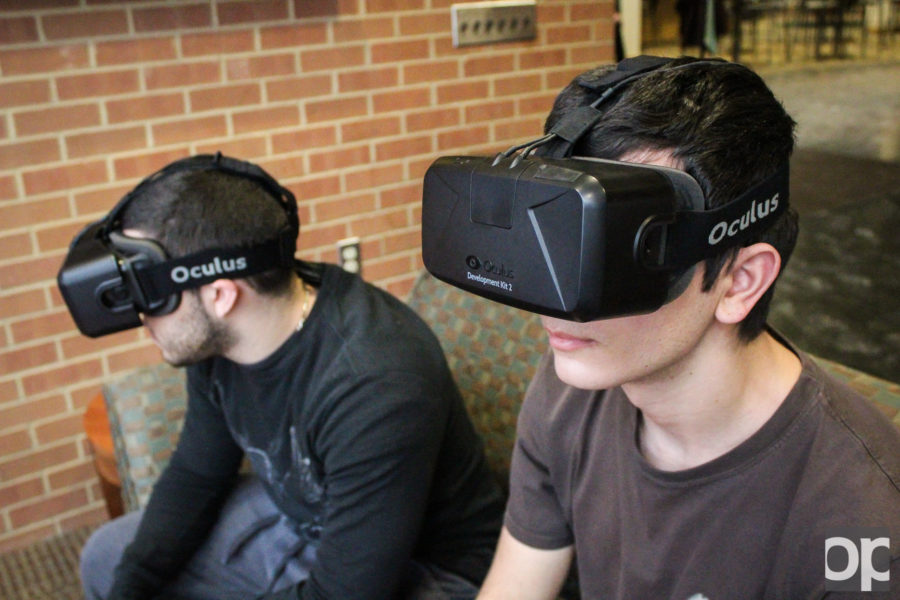Playing with reality
The League of Engineers and Computer Scientists (LECS) have something not a lot of colleges get to experience – virtual reality.
It’s called the Oculus Rift, a headgear that submerges your eyes into a simulated state of reality.
The virtual reality technology that exists today is similar to a simple version of a video game but includes more eye and head movement rather than button mashing.
A user can “look around” in real time, while moving his or her head up, down, and around. When using a simulated space application, for example, if the user looks up he or she will be able to see the stars as realistically as star gazing on a cloud-free night.
“A lot of people aren’t experimenting with this yet — we are among the first,” said LECS President Dom Dabish. “No rules, it’s all brand new.”
With two Oculus Rifts in their possession thanks to the Student Funding Board, the members of LECS are enjoying the virtual interaction and are optimistic about what they can create with this new technology.
“The first thing we want to do is develop,” Dabish said. “We want to use the programs available to make an original application.”
Eventually the LECS hopes to get its hands on Leap Motion input, which tracks finger and hand movements without connecting sensors to the user.
“It’s like you can pick up a Coke and drop it or throw it while watching it happen on the Oculus,” Dabish said.
The LECS is also seeking helpers. It needs students to generate unique and creative uses for virtual reality and people to test it out in action.
“We’re open to anyone joining,” Vice President Ivan Gappy said. “No background in computers required; we value all ideas.”
Playing with the Oculus Rift is fun and new. Some people, though, may be sensitive to the movement and get dizzy.
“Every time I play around with the Oculus, I think to myself how amazing this is,” said LECS member Andrew Alisa.







